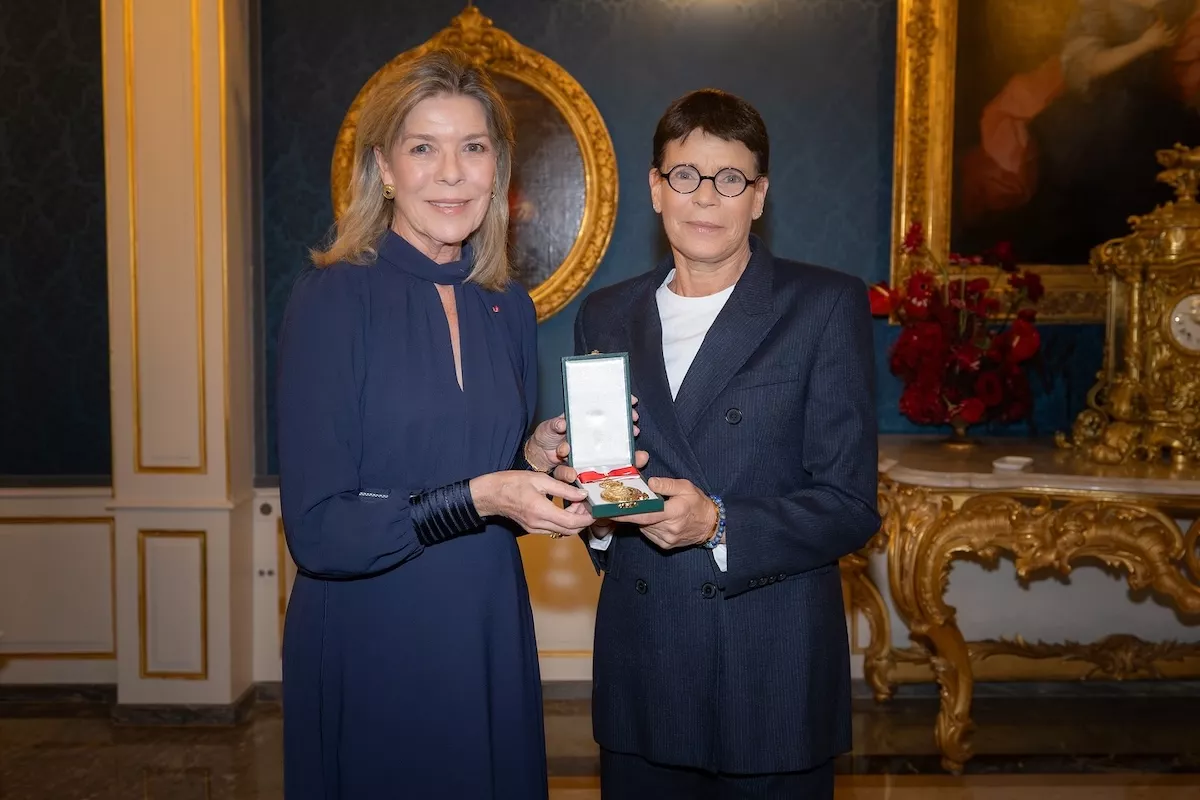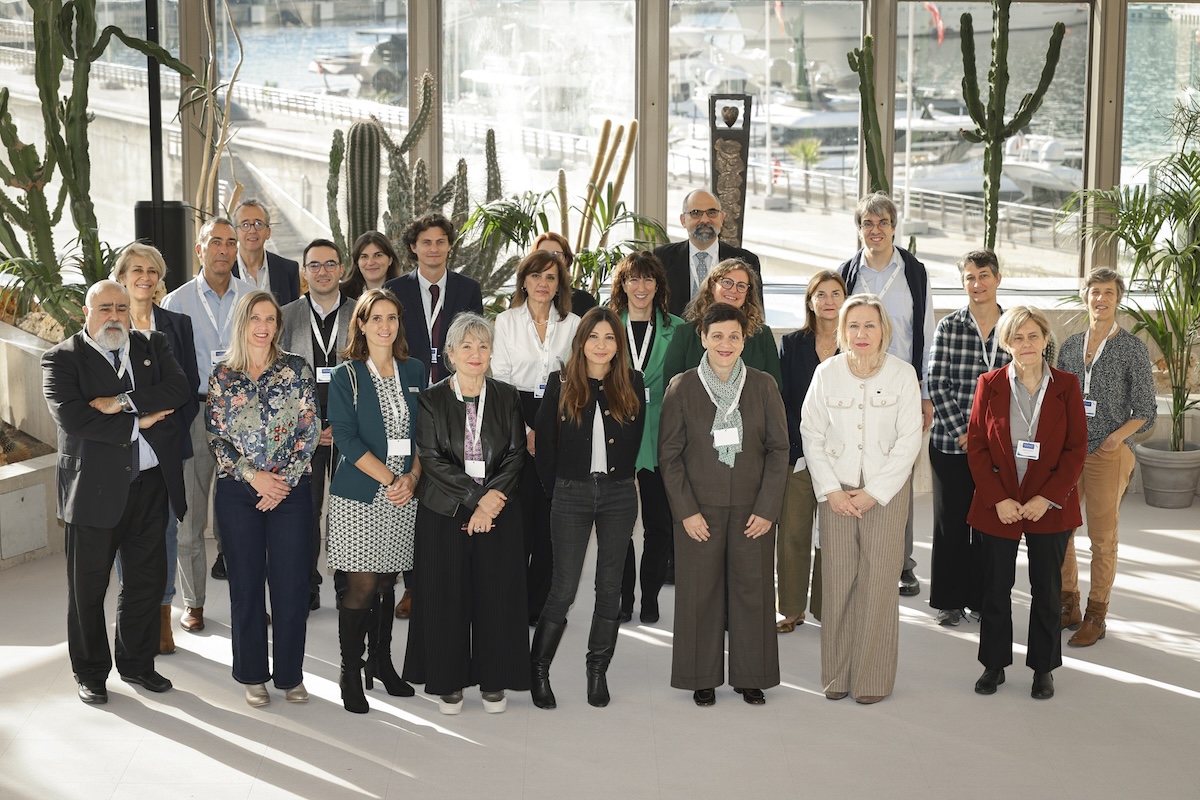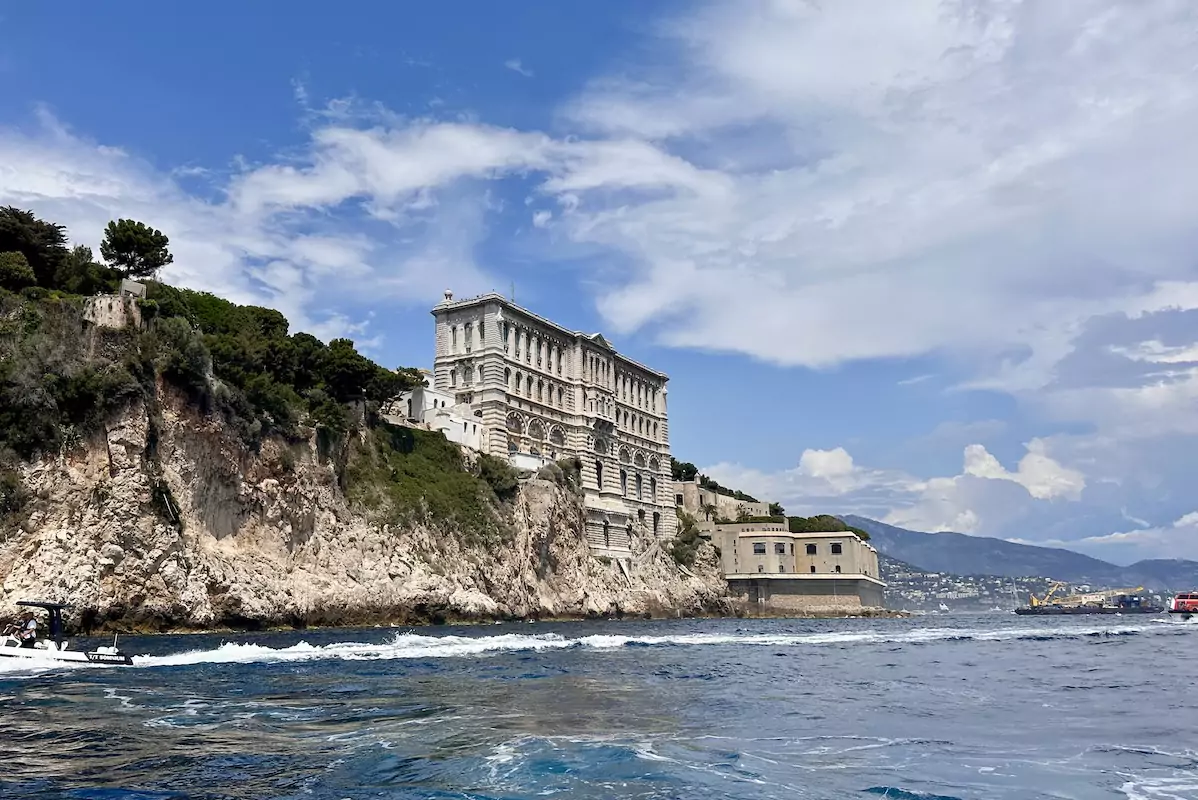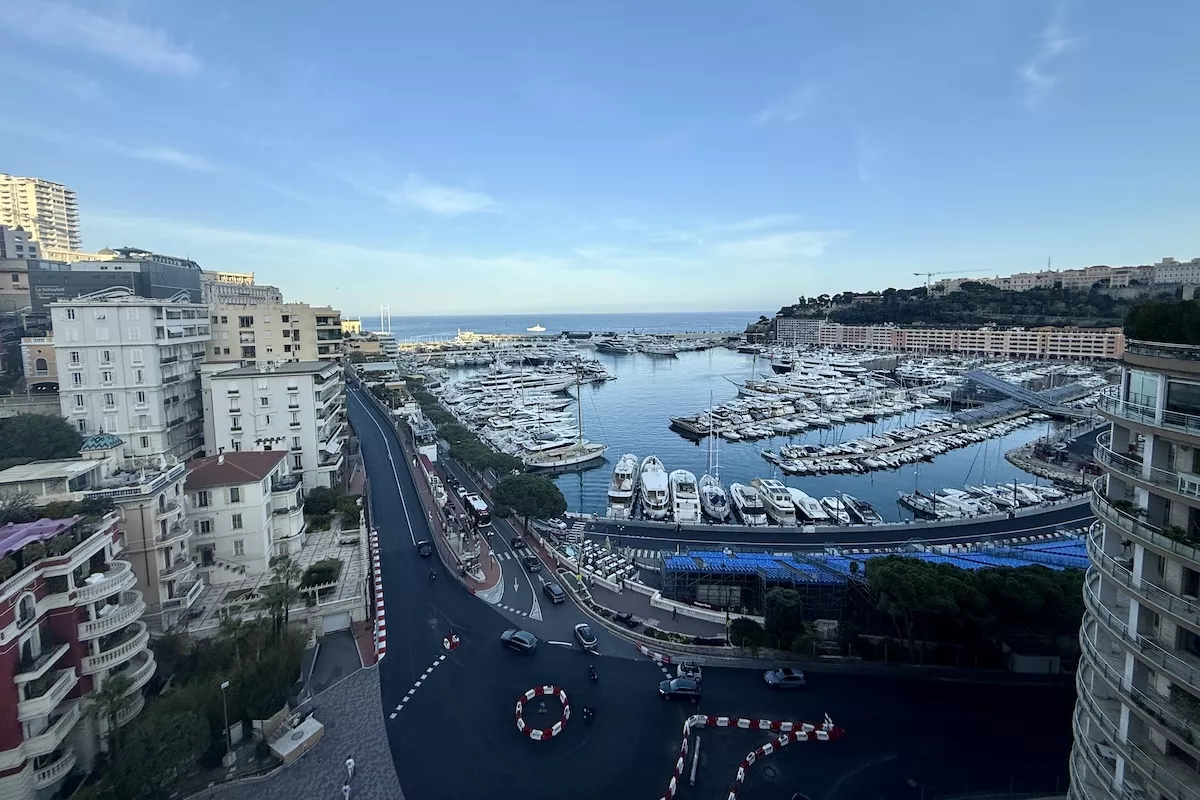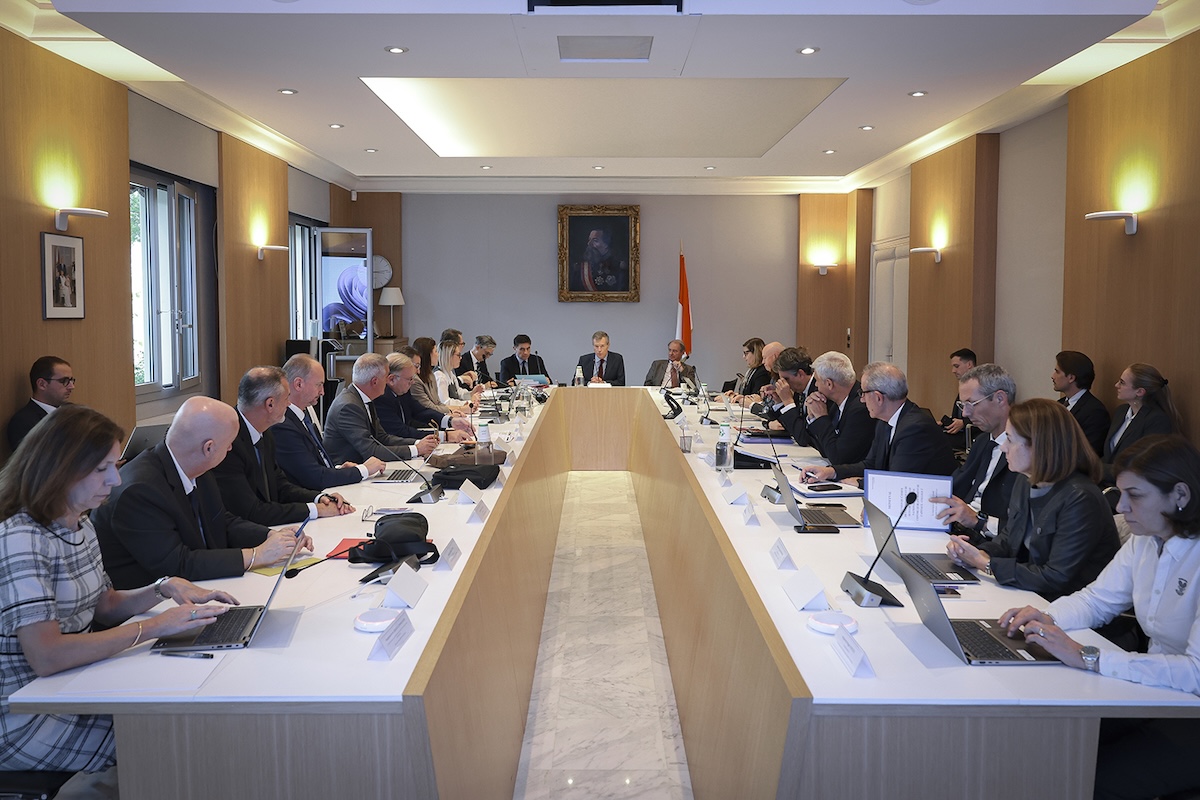In one of the more intimate moments of Monaco’s Fête Nationale celebrations, two sisters at the heart of the Principality’s public life took centre stage at the Palais Princier on Tuesday 18th November — one to honour, and the other to be honoured.
Princess Stéphanie was awarded the rank of Commander in the Ordre du Mérite Culturel, the highest distinction of its kind, in recognition of her decades-long dedication to Monaco’s cultural and social landscape. The medal was presented by her elder sister, Caroline Princess of Hanover, President of the Conseil d’Honneur of the order, in a ceremony that blended formality with quiet familial pride.
Held in the Salon Bleu, the annual event celebrates individuals whose work and commitment have contributed to Monaco’s cultural vitality — whether through music, heritage, visual arts or community engagement. In Princess Stéphanie’s case, her championing of the circus arts and her leadership in charitable initiatives formed the cornerstone of her recognition.
Princess Caroline, in her speech, reminded attendees that culture is not a luxury but “a common good”, and praised this year’s recipients as “poets of gesture and material, transmitters of emotion and meaning”.
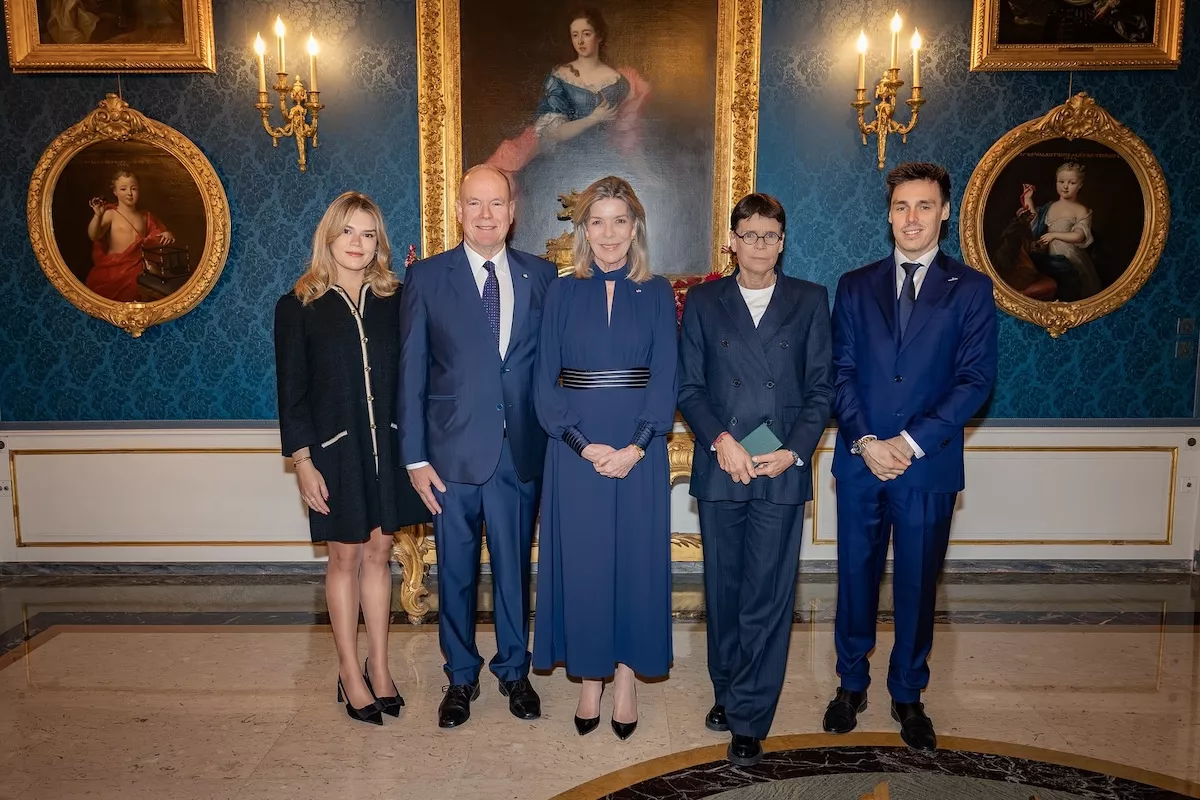
Recognising cultural voices, past and present
The ceremony also paid homage to historic cultural figures with ties to Monaco, including Joséphine Baker, who found a final home in the Principality, and avant-garde composer Pierre Boulez. Their influence, said Caroline, continues to echo in Monaco’s artistic identity.
In total, seven individuals were honoured this year across diverse fields — from art curation and music composition to heritage conservation and cultural diplomacy. Their achievements, Caroline noted, reflect “a culture that dialogues with history, nature, and modernity”.
Among the honourees were Björn Dahlström, director of the Nouveau Musée National de Monaco; composer Bruno Mantovani; comic artist and writer Damien Mac Donald; and curator Ashok Adicéam. The awards also recognised Isabelle Minioni for her role in cultural mediation, and Pierre Nouvion Duboys de Lavigerie for his ongoing contribution to Monaco’s historical preservation.
The Ordre du Mérite Culturel was created in 1952 to formally acknowledge those who enrich the intellectual and artistic life of the Principality.
Stay updated with Monaco Life: sign up for our free newsletter, catch our podcast on Spotify, and follow us across Facebook, Instagram, LinkedIn, and Tik Tok.
Photo credit: Frédéric Nebinger, Prince’s Palace
